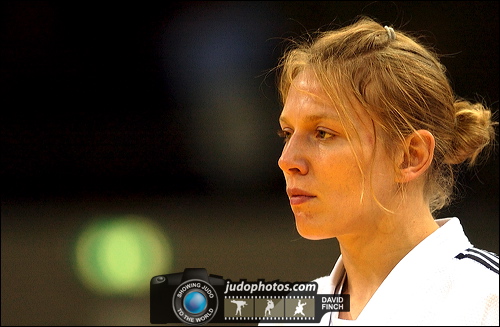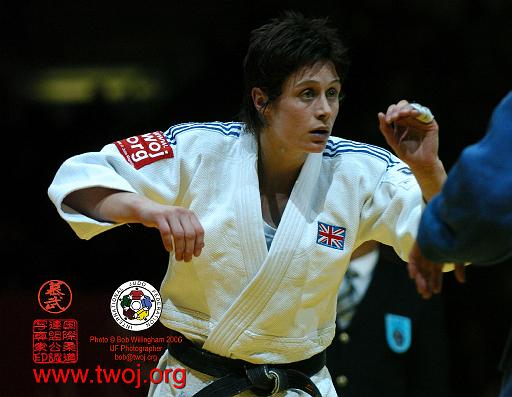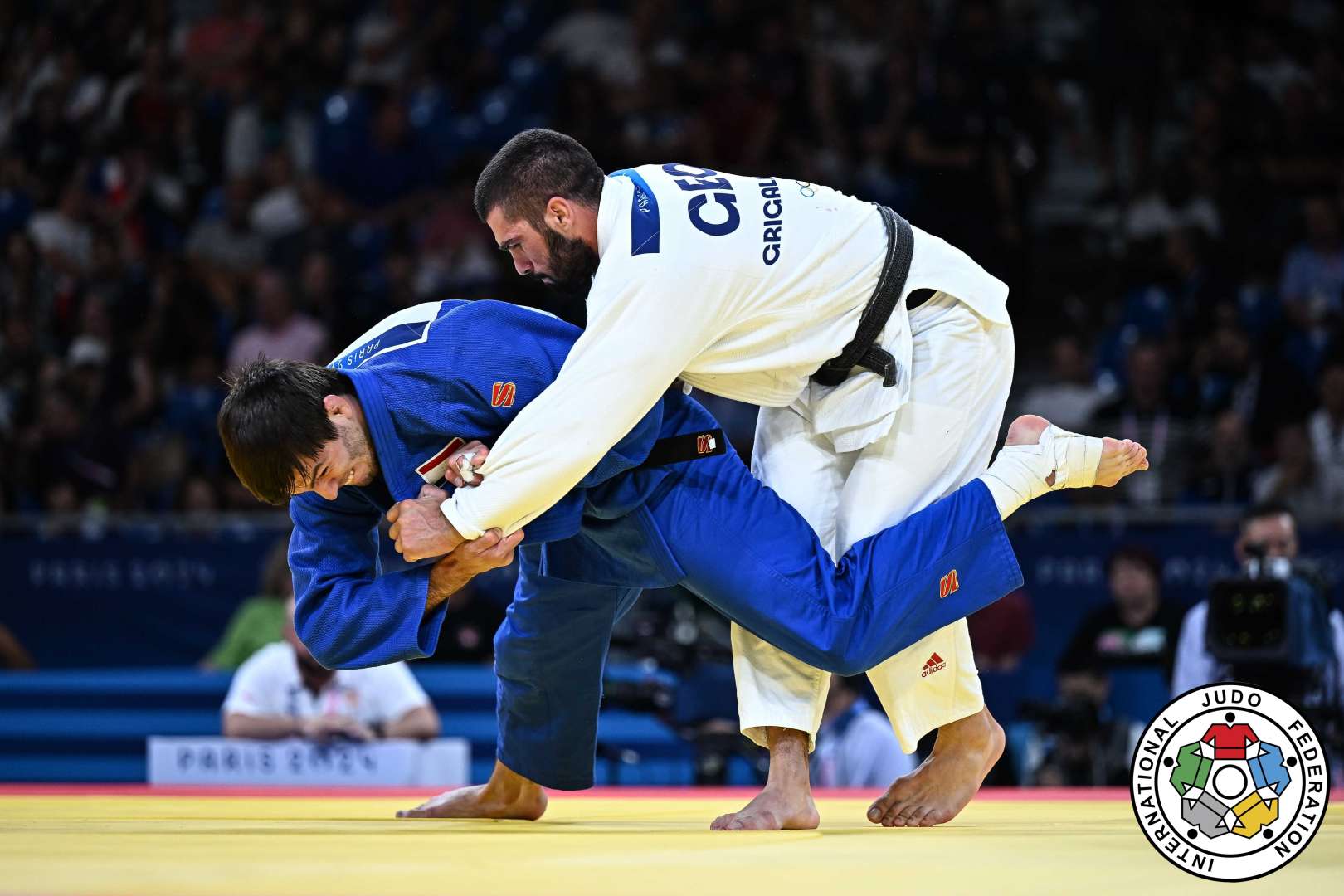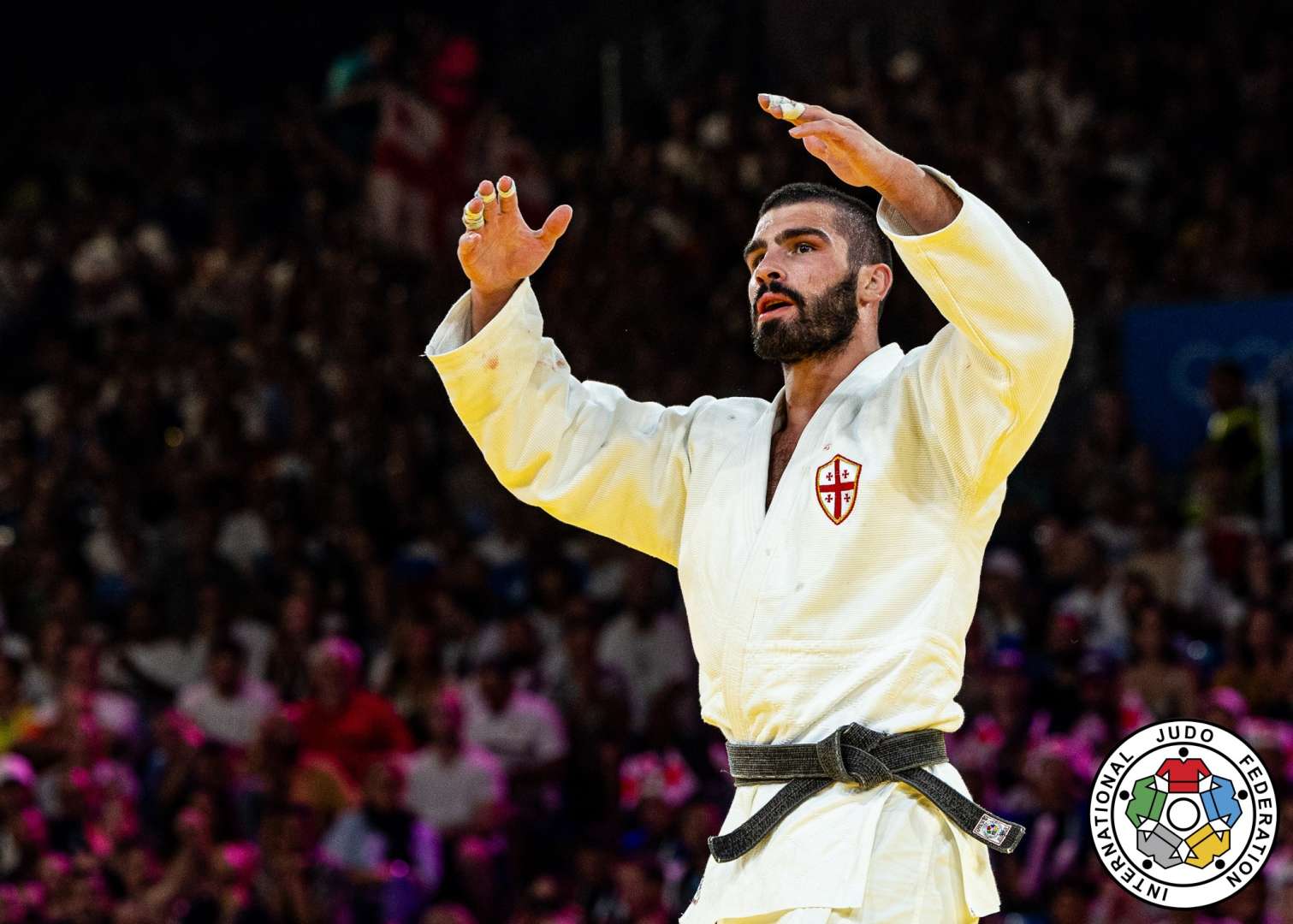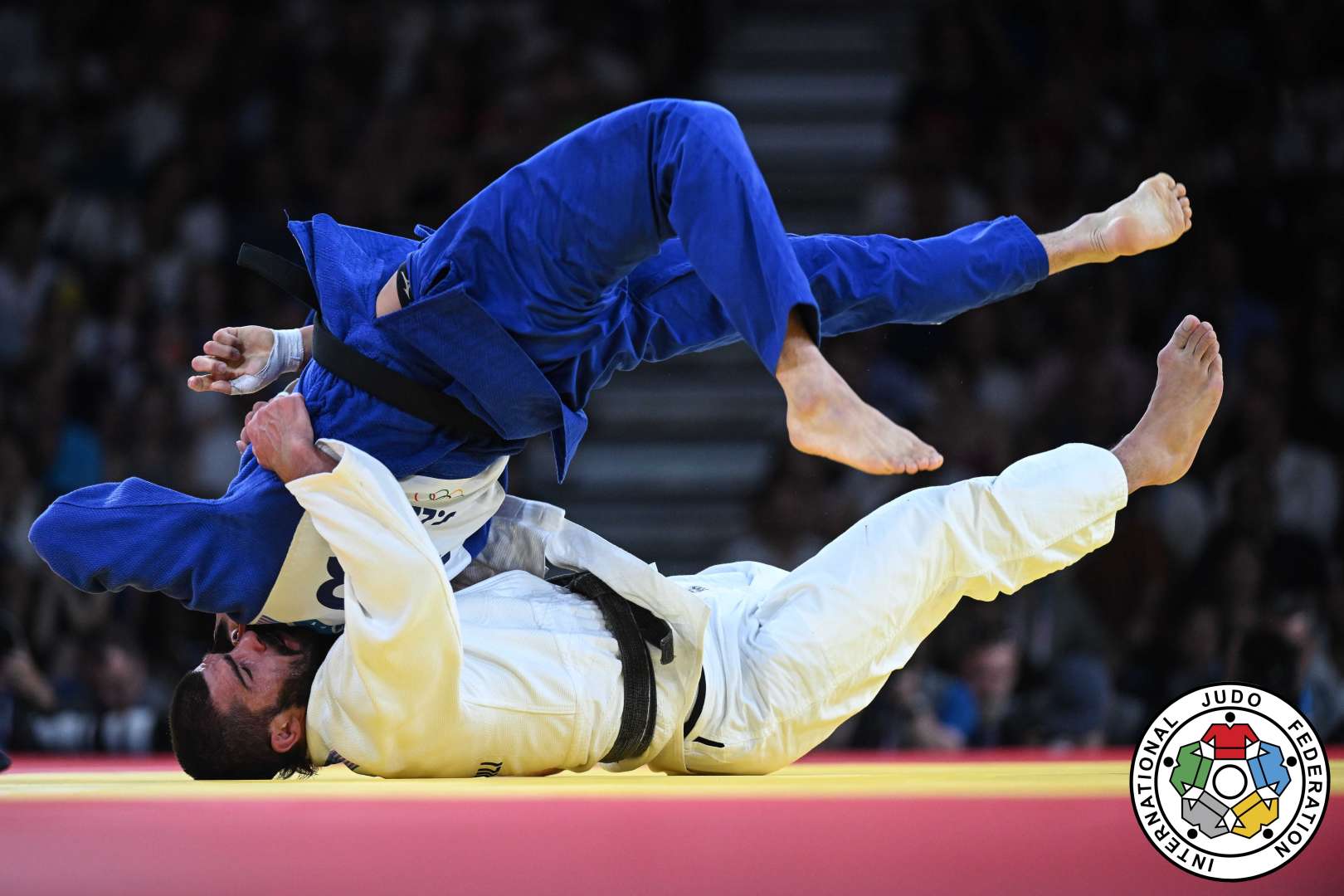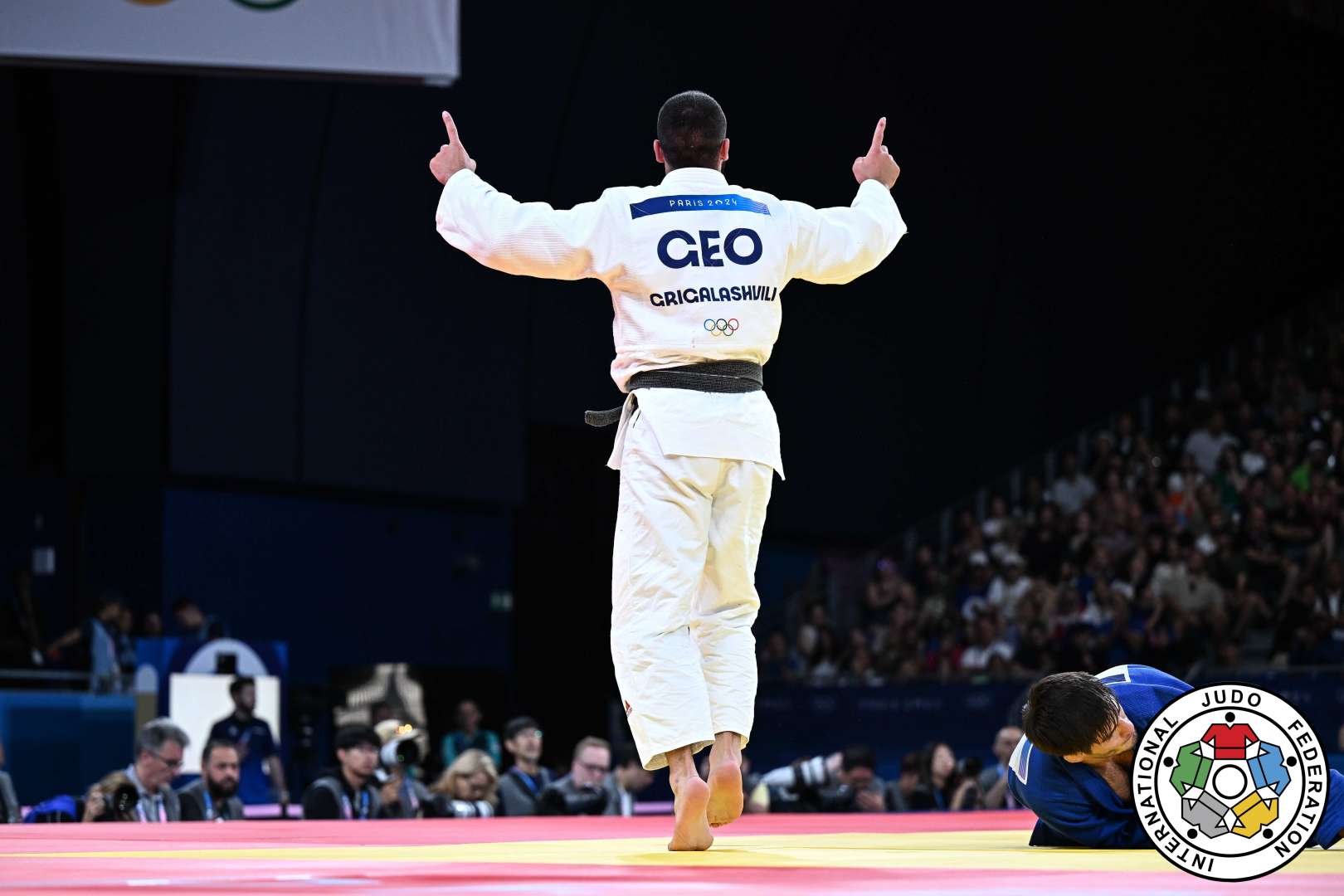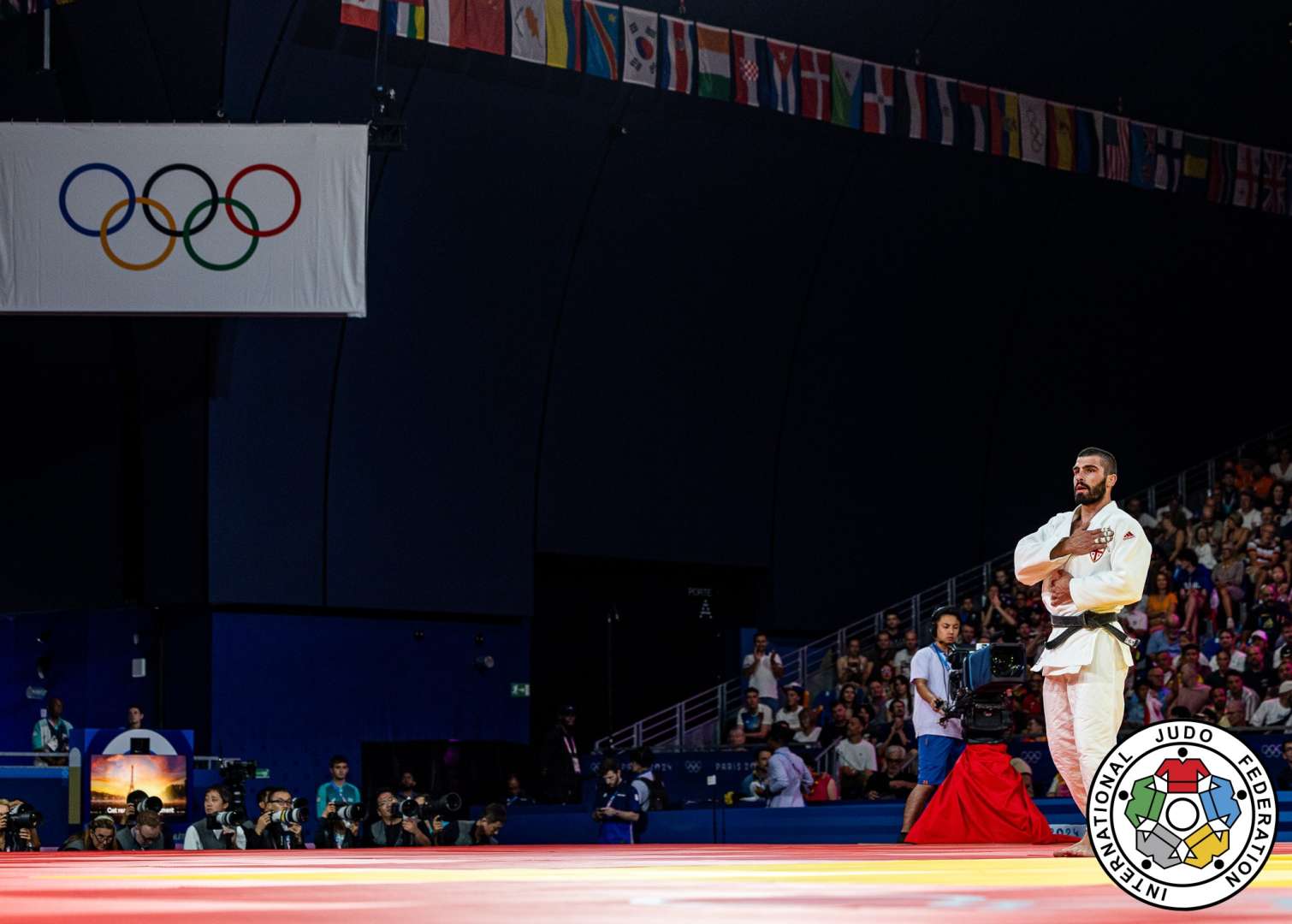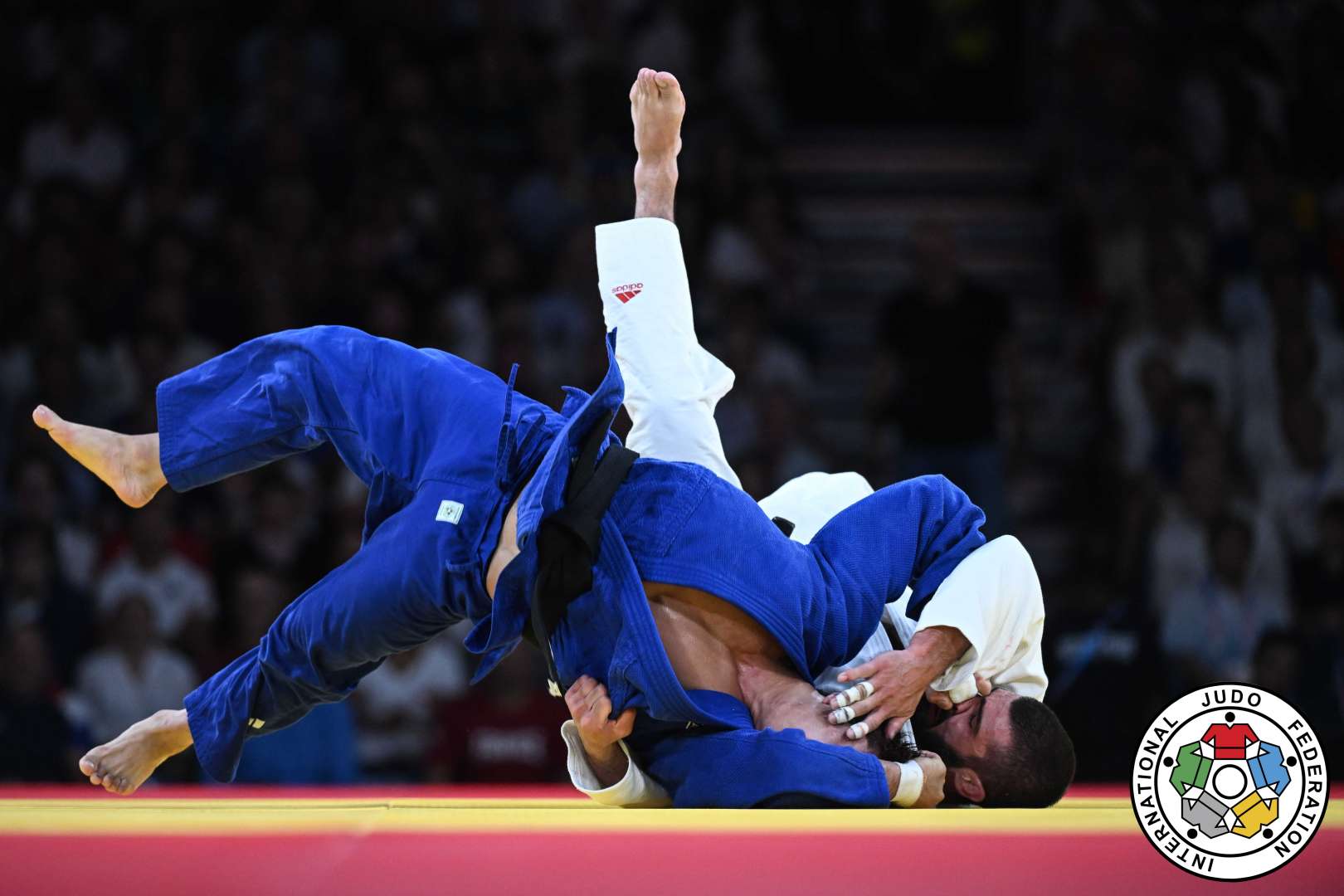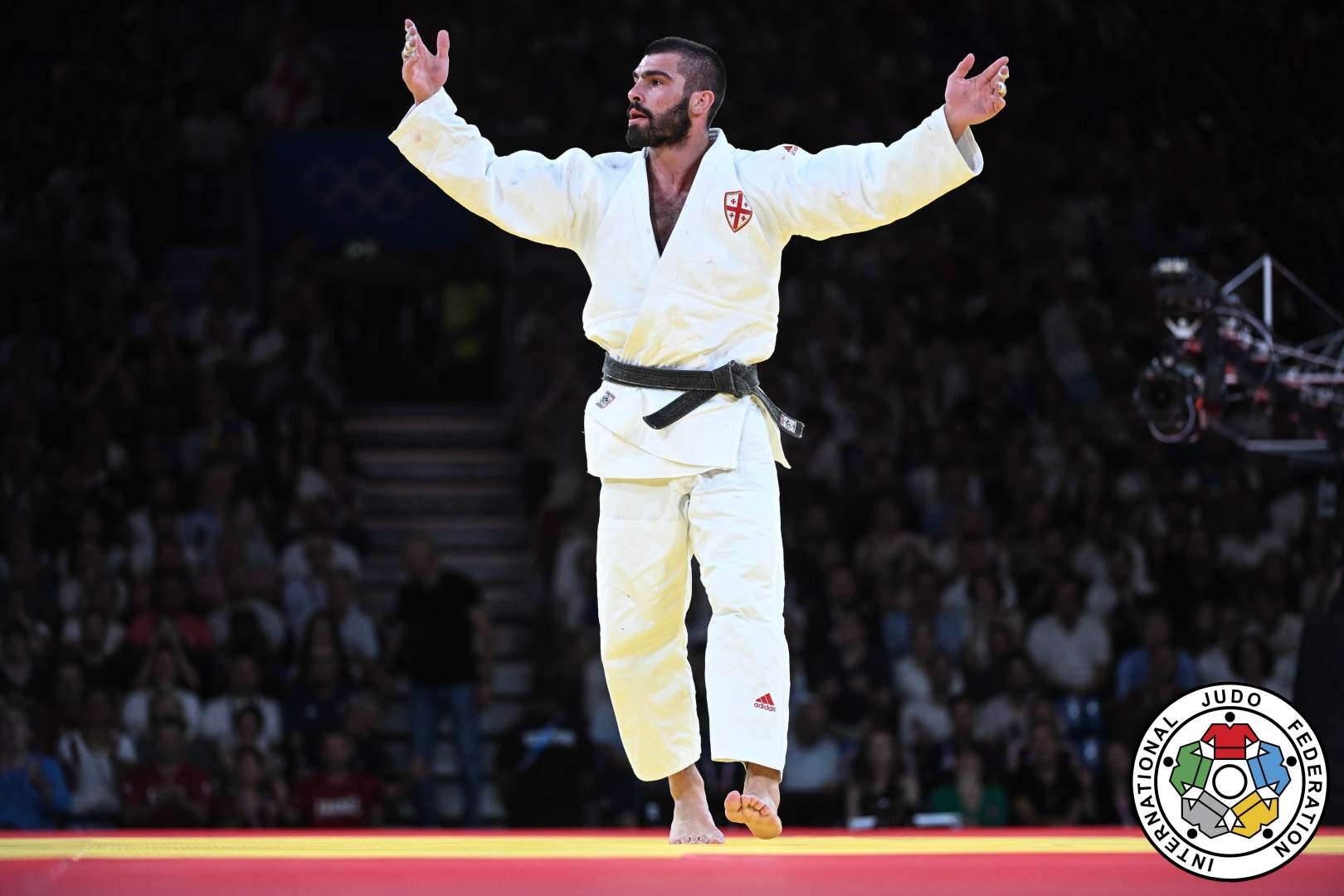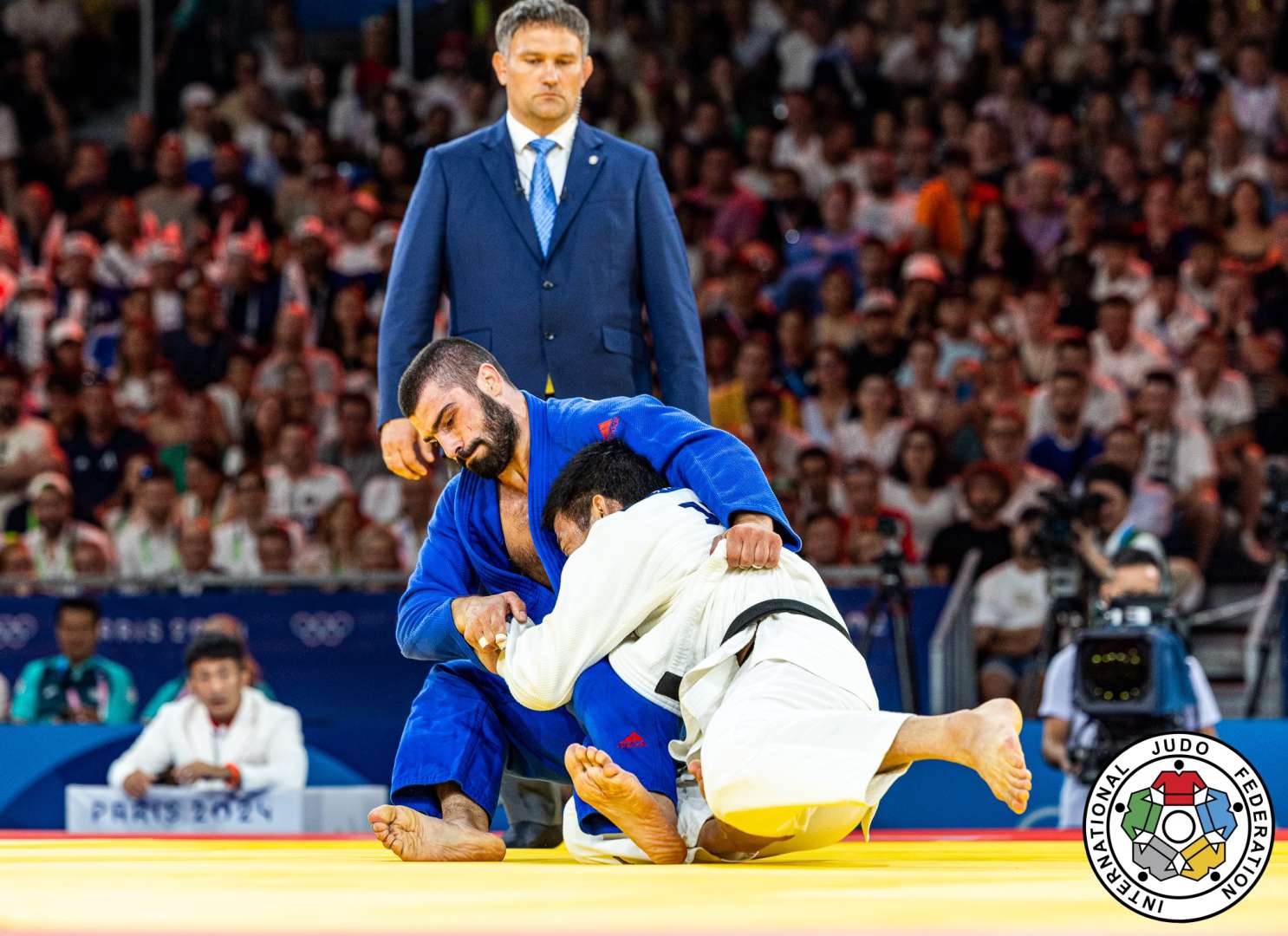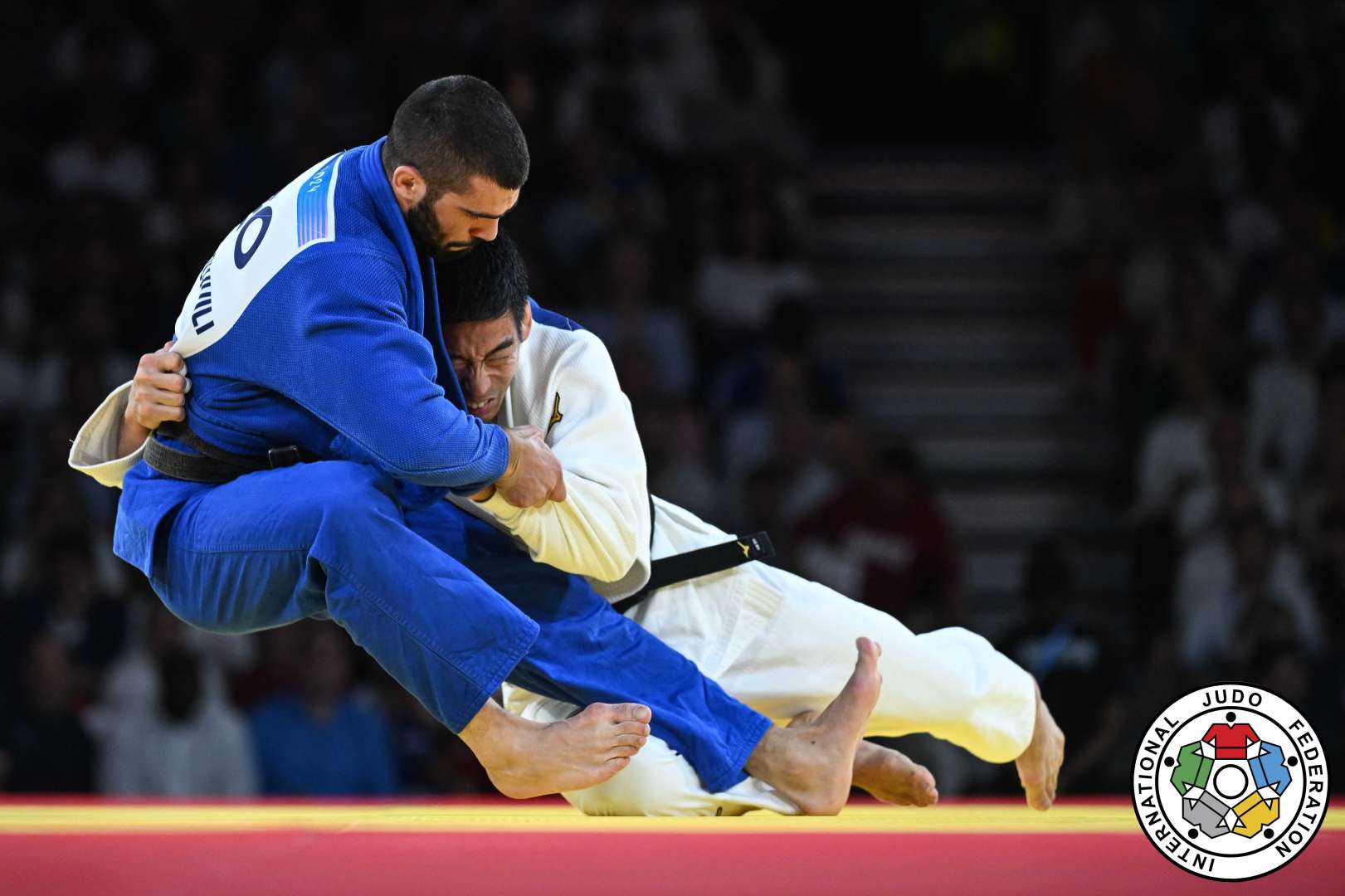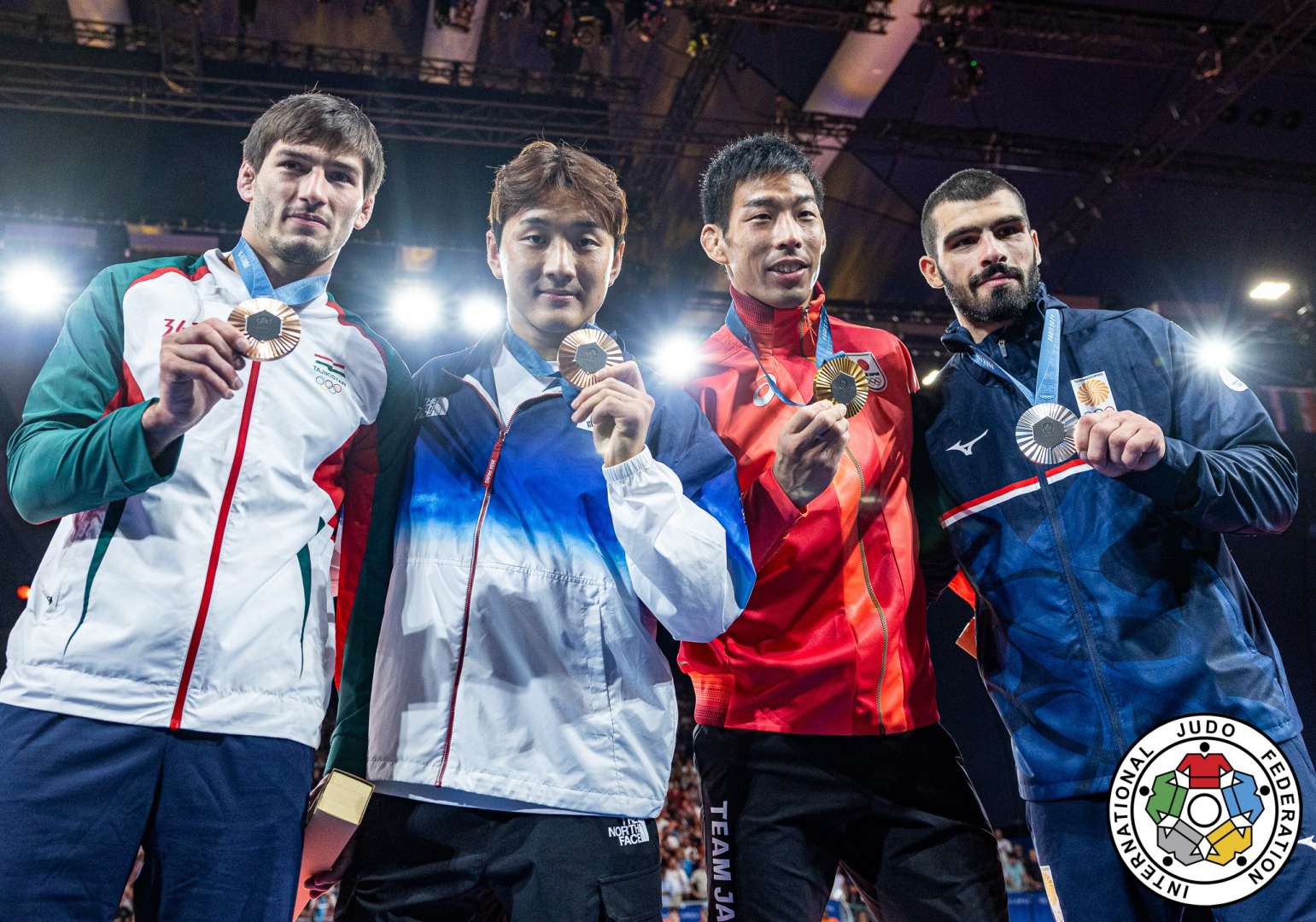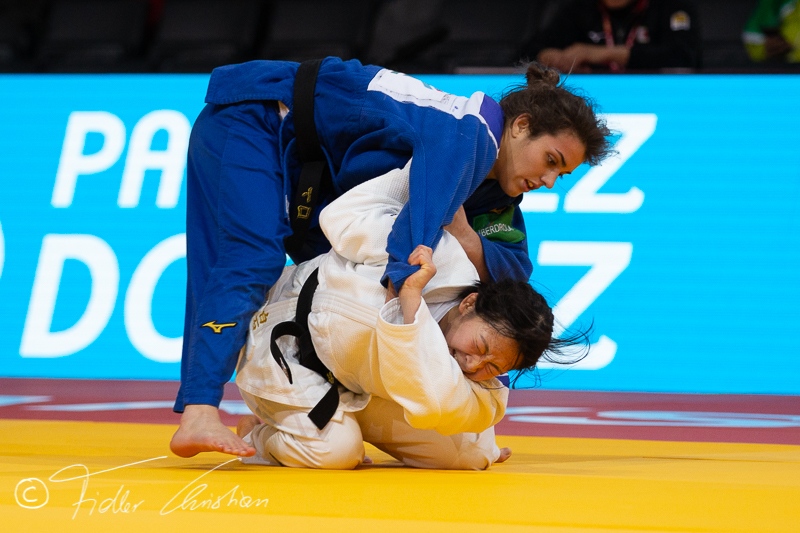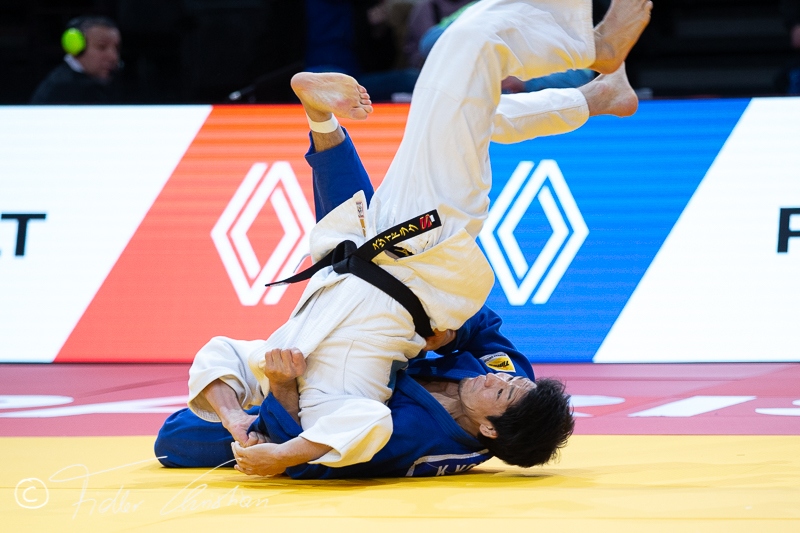Karina Bryant gets heavy with the China syndrome

 2 Aug 2004 11:30
2 Aug 2004 11:30
 Alan Hubbard - The Independent
Alan Hubbard - The Independent
 David Finch / Judophotos.com
David Finch / Judophotos.com
Britain may have only one Olympic boxing representative in the precocious talent of Amir Khan, who happens to be a lightweight, but there's a fair chance that another home-grown fighter could follow in the footsteps of Audley Harrison and walk away with a heavyweight gold medal in Athens. This exponent stands 6ft 2in, weighs in close to 15st, and makes a habit of flooring world-class opposition - though on the mat rather than in the ring.
As heavyweights go, Karina Bryant may not have the clout of Harrison, but she could probably put him on his back quicker than you can say ippon. That's judo-speak for a knockout, which Bryant will be should she become the first Briton ever to strike gold in the sport which, somewhat paradoxically, translates from the Japanese as "the gentle way".
Not that there seems much gentility about the Bournemouth-born 25-year-old as she goes about the business of throwing other people's weight around. Many beefy chaps have submitted to her stranglehold in training, and she goes to the Games as probably the best hope of any in the eight-strong British team.
They used to say that judo, like most martial arts, was a man's game. Not any more. Team GB have six women and only two men, and in the arguably even tougher discipline of taekwondo it is the high-kicking, fast-punching Yorkshirewoman Sarah Stevenson who has the outstanding podium potential. Bryant, a three-time European senior champion, a world silver and bronze medallist, and a world junior champion, says she has been "getting fit and healthy again" after recovering from two operations, one on her right thumb, which had to be reconstructed, and another on her left knee, both the result of judo injuries.
Yet after an eight-month absence she managed to take silver in this year's European Championships in Romania, and reckons she is now 100 per cent fit. "I was pleased with my performance because I beat a couple of girls who had beaten me in the past," she says. She lost in the final to a Ukrainian who had defeated her in the world championships. "She caught me clean but I wasn't properly switched on, not concentrating properly. But the gold medal wasn't really my priority. It was getting the match practice."
She envisages the Athens opposition will be even tougher than that in Sydney, where she surprisingly went out to a Senegalese in the second round. But this time a medal will be very much on her mind. And she wants the main one. "I believe I have a good chance. Depending on the draw, there's no reason why I can't win it."
However, like young Amir Khan in the boxing ring, she will be hoping to avoid, in the early stages, the current world-beater. In Amir's case it is a Cuban; Bryant's bête noire is from China, one Sun Fuming.
Bryant has fought her twice, and lost. In fact, she admits she has never actually beaten a Chinese opponent. "But that doesn't mean to say I won't. At the moment, with the condition I'm in, I know I can beat them. Before, I've always had doubts in my head. I saw them as indestructible. The last three Olympic champions have all been Chinese. They really have unbelievable depth, particularly in the heavier divisions, where they have been in a class of their own for a long time."
Now, however, Bryant believes she is mentally as well as physically ready to banish this China syndrome. The other team members are Georgina Singleton, Sophie Cox, Sarah Clark, Rachel Wilding, Craig Fallon and Winston Gordon. "Everyone is capable of a medal if we perform on the day," says Bryant. "The thing is not to let the pressure get on top of us."
Her coach, Mark Earle, has nurtured the Bryant talent since her early teens, and she was among those of his pupils who, with their own hands, built a DIY dojo on a disused car park at Camberley in Surrey. It is now Britain's only purpose-built Japanese-style training camp where judo players can live and train together full-time.
Earle says of Bryant: "She's a big girl but not a bully at all. Because she has such good technique it means she doesn't have to rely on sheer aggression. When she first came here as a 14-year-old she already weighed about 80 kilos, and I don't think the other girls relished the thought of practising with her. But as she threw them she would put her arm underneath and gently lower them to the floor. She's such a nice girl."
Of the British team, only Bryant and the redoubtable Kate Howey have had previous Olympic experience. These will be Howey's fourth Games. When she won the middleweight silver in Sydney (she also won bronze in 1992) it was Britain's 16th Olympic judo medal. But the gold proves elusive. Bryant's Olympic build-up has also been helped by fighting professionally for a team in Germany's judo bundesliga which, added to Lottery money, enables her to devote all her time to the sport.
"In fact, apart from eating and sleeping, judo is all I do. It consumes every waking hour," she declares before jumping into her hopefully symbolic gold Mini-Cooper (J4 UDO) and driving to her home in Farnham for another quick kip between one of her three daily training sessions. Then it will be back to the dojo to practise her harai-goshis and seoi-nagis (hip and shoulder throws). After all, she has a Great Wall to climb.
 like
like
 share
share
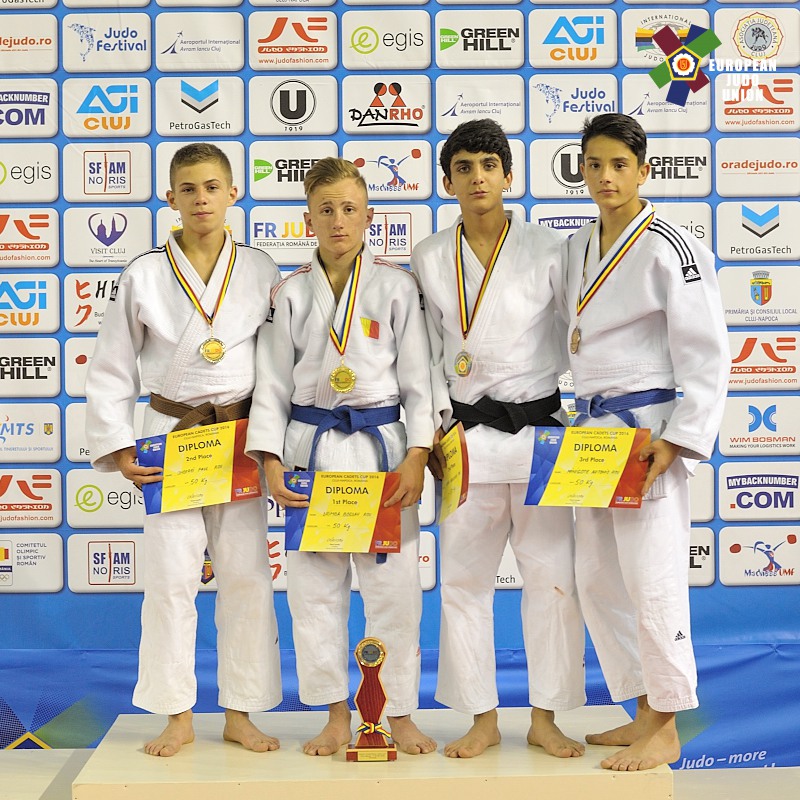
| Result | City | Date |
|---|---|---|
| 2 | Paris | 2024 |
| 1 | Abu Dhabi | 2024 |
| 1 | Zagreb | 2024 |
| 3 | Belgrade | 2023 |
| 2 | Montpellier | 2023 |

9 (2).jpg)
